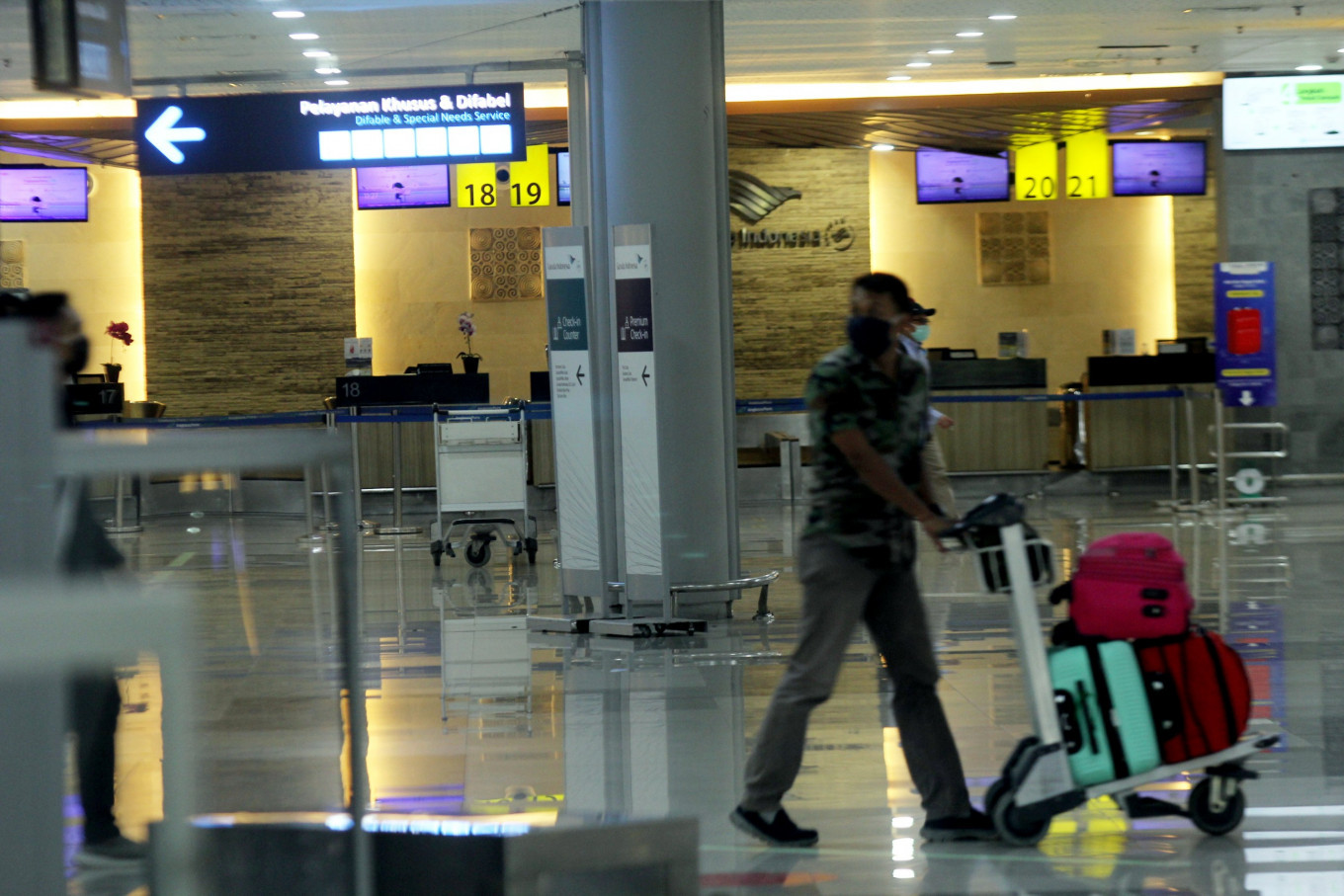Popular Reads
Top Results
Can't find what you're looking for?
View all search resultsPopular Reads
Top Results
Can't find what you're looking for?
View all search resultsNew regulation allows businesspeople, officials to travel despite ‘mudik’ ban
Repatriated Indonesian nationals, individuals who need emergency medical care and family members of a deceased individual are also exempted from the ban.
Change text size
Gift Premium Articles
to Anyone
A
circular letter issued by the COVID-19 task force on Wednesday allows businesspeople and state officials that are involved in health and essential services to travel despite the government’s restriction on all passenger travel.
The exemption is given to state officials, private sector workers and state-owned enterprises (SOEs) employees that provide health services, basic necessities, security and defense and vital economic functions.
Repatriated Indonesian nationals, individuals who need emergency medical care and family members of a deceased individual are also exempted from the ban, the document shows.
State officials are required to obtain a permit from their superior with at least the rank of Echelon II, while businesspeople are required to sign a statement letter to notify local officials. Prior to their departure, all traveling individuals must provide a negative result of a COVID-19 polymerase chain reaction (PCR) test or rapid test, or health documents from a hospital or clinic as well as a return ticket.
Read also: Jokowi mulls option to move Idul Fitri collective leave to July
Certain individuals are exempted from the travel restriction to streamline the distribution of test equipment, personal protective equipment (PPE) and staple foods and to expedite the COVID-19 testing process, the task force chief, Doni Monardo, said.
“I’d like to reassert that mudik is still banned,” he said during a televised statement on Wednesday. “We issued this regulation based on the fact that there are logistical hindrances in sending COVID-19 test results, as well as reports on the lack of transportation for medical personnel.”
The government is currently restricting all kinds of passenger travel through Transportation Ministerial Regulation No. 25/2020 in an attempt to ban the Idul Fitri mudik (exodus) as it scrambles to contain the spread of COVID-19 in the country.
All inbound and outbound travel from COVID-19 red zones, areas that are implementing large scale social restrictions (PSBB) and agglomeration areas, such as Greater Jakarta and Greater Bandung in West Java, is prohibited from April 24 to May 31, the regulation stipulates.
The ministerial regulation indeed sets out several exceptions, including the transportation of supplies, medicines and medical equipment, as well as fire trucks, ambulances and hearses. Operational vehicles for specific missions, such as repatriation flights and for transporting high-ranking officials, COVID-19 task force officials, government officials, the Indonesian Army and the National Police are also allowed to travel.
Read also: Explainer: What’s allowed and what’s not in Indonesia's ‘mudik’ ban
However, exemptions for businesspeople or others with “essential urgencies” are not stipulated in the regulation.
Earlier on Wednesday, Transportation Minister Budi Karya Sumadi said the ministry could allow all public transportation to recommence operations by Thursday to accommodate individuals who were exempted from the mudik ban.
“It is possible to allow all types of transportation to get back to operations with one condition: they must comply with the health protocol,” he told lawmakers.










